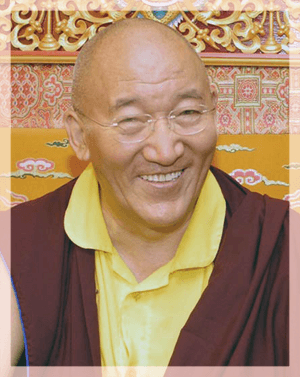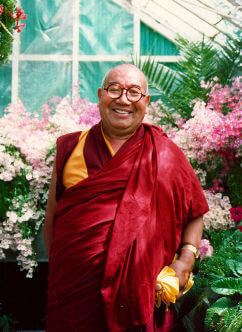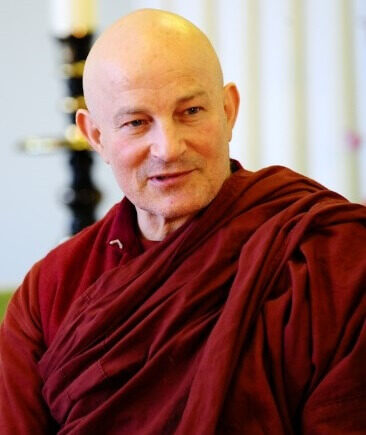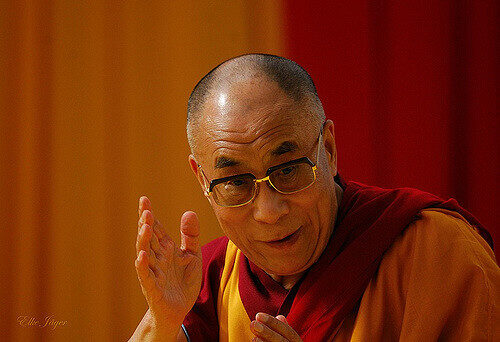Ayang Rinpoche was born into a nomadic family in eastern Tibet. A delegation of high lamas , including the Sixteenth Gyalwang Karmapa Rangjung Rigpe Dorje and Yongzin Jabra Rinpoche, concluded that he was the wisdom incarnation of Terton Rigzin Choegyal Dorje.
In 1982 HH Dalai Lama and HH Karmapa each requested Ayang Rinpoche to travel to “the Western countries” and there teach Phowa. Interestingly, both great lamas independently gave Rinpoche similar advice. Both stated that, because Dharma is not part of the cultural heritage of the West, Westerners usually lack faith in the power of Dharma. They said that Phowa’s effect of quickly producing physical signs in the practitioner’s body would help give the materialistic European or American student confidence in Dharma. And, increased faith would serve to encourage sincere Western students to practice virtue. However, Ayang Rinpoche expressed one concern. Would people benefit? Phowa is one of the Six Yogas of Naropa. This body of practices-advanced tantric teachings that apply powerful liberated technique to each of the six bardos (Phowa corresponds to the bardo of the moment of death)-is rarely taught before the practitioner has completed the foundation practices (Ngondro).
Nonetheless, both HH Dalai Lama and HH Karmapa assured Ayang Rinpoche that his teachings would be of benefit to the people of the West. Ayang Rinpoche has since stated that Phowa is like an insurance policy: if one has realized Mahamudra, there is no problem at death, but if one’s practice is not complete Phowa is very useful. However, the Phowa itself requires commitment. Should the Phowa be attempted without the vital precaution of an initiation from a lineage holder, the results will not be the same, and the practitioner will be faced with dangers. With initiation, instruction and correct practice the blessings of the lineage will flow unhampered to the disciple, bringing quick results. The blessings of this lineage are so effective that many received physical signs of accomplishment quickly-after a brief period of practice or even during the oral transmission of the text.




